Iran’s snap presidential vote testament to robustness of its democracy: Ex-diplomat
By Alireza Hashemi
Iran’s snap presidential election demonstrates the nation's commitment to participatory and competitive democratic processes, serving as a testament to the robustness of its democracy, says an analyst.
In an interview with the Press TV website, Mohsen Pakaeen, a retired career diplomat who served as Iran’s ambassador to Azerbaijan, Uzbekistan and Thailand, said the June 28 vote stood out for its inclusivity, with candidates from different political backgrounds running for the top executive office.
"The election was a reflection of the people's will, with a satisfactory turnout and representation from all political persuasions," he stated.
"It was a serious competition, indicative of a robust democratic exercise.”
The former ambassador highlighted the rapid vote-counting process and the immediate broadcast of results through state television as evidence of the ballot’s transparency and integrity.
“Representatives of the candidates were present at the ballot boxes, and no serious objections to the results were announced by any of the candidates, confirming the integrity of the process,” he said.
Despite attempts by certain hostile groups to disrupt the electoral process, the country’s security apparatus ensured a smooth and secure election.
“Some anti-revolutionary groups attempted to disrupt the electoral process during or before the vote, but they were arrested either before or during the elections. The country's security apparatus was in control and managed to protect the security of the vote,” he said.
The Friday vote ended in a tie between former nuclear negotiator Saeed Jalili and former health minister and lawmaker Masoud Pezeshkian, leading to a run-off slated for Friday, July 5.
The two candidates on Sunday resumed campaigning across the country and the first of two presidential debates are scheduled to be held on Monday evening.
The former diplomat also commented on the Western media's coverage of Friday’s vote, noting a shift from supporting specific candidates to focusing on reducing electoral participation.
"Unlike the 2017 presidential elections, this time the (Western) media concentrated on the people's involvement rather than individual candidates," he observed.
“They tried to discourage people and prevent their participation in the election, but were unsuccessful.”
Asked what would be the policy of the next Iranian president on sanctions-removal talks, Pakaeen emphasized Iran’s commitment to uphold the JCPOA framework and said this would continue under either of the two candidates, ensuring Iran's dignified and proactive participation in negotiations.
“That’s the general policy of the system, and future presidents will not abandon this approach. They will participate in negotiations honorably and actively to lift sanctions, pursuing a commitment-for-commitment approach,” he said.
“We are ready to the extent that the other party fulfills its commitment to lift sanctions within the framework of the JCPOA. I think this policy will be on the agenda of the future president, regardless of their political persuasion.”
The JCPOA, signed in 2015, was put on the back burner three years later, in May 2018, when former US President Donald Trump unilaterally withdrew from it and re-imposed sanctions on Iran.
The administration of the late President Ebrahim Raeisi engaged in indirect talks with Joe Biden’s administration to revive the deal, but the procrastination exhibited by the US prevented a breakthrough.
VIDEO | On the threshold: Iran's run-off presidential election
Al-Quds Brigades: Israeli captives attempted suicide in Gaza
VIDEO | Internal disputes
Iran, Turkmenistan sign deal for gas swap to Iraq
Israeli spy still part of Labour as UK heads for elections: Report
Israel has made largest West Bank land seizure in 3 decades: Report
UK’s complicity in Israeli genocidal war on Gaza to shape Thursday's election
Why can Hezbollah send Israeli regime back to ‘Stone Age’ in the event of war


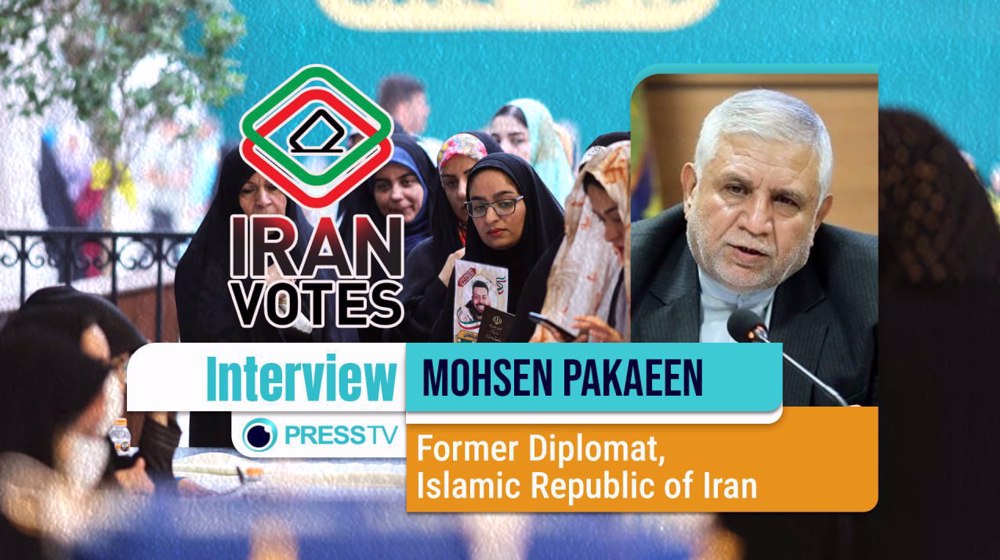
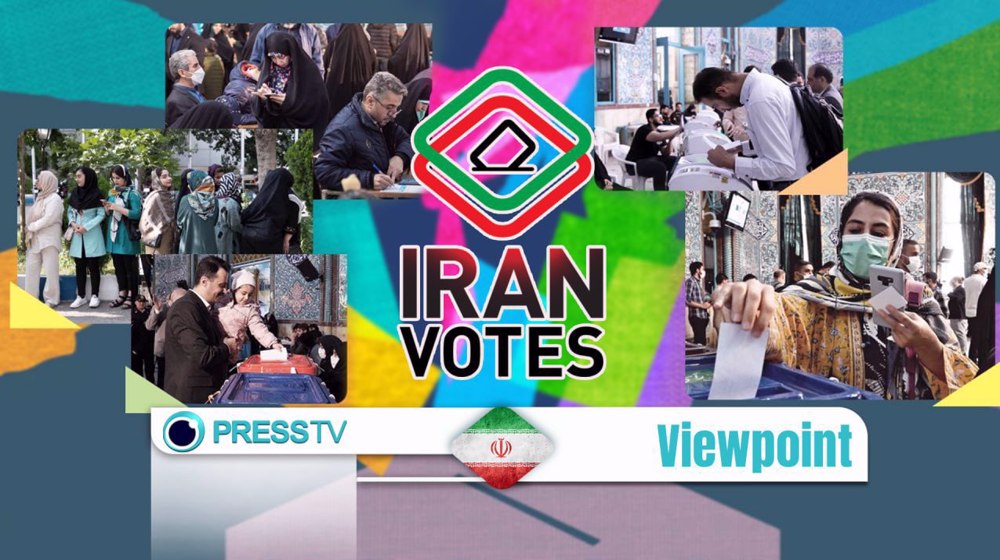
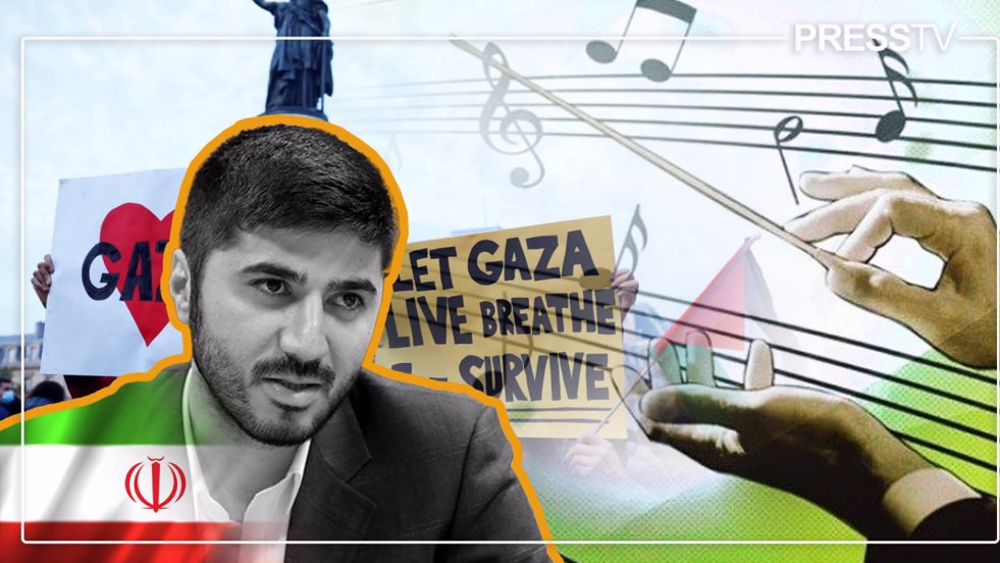
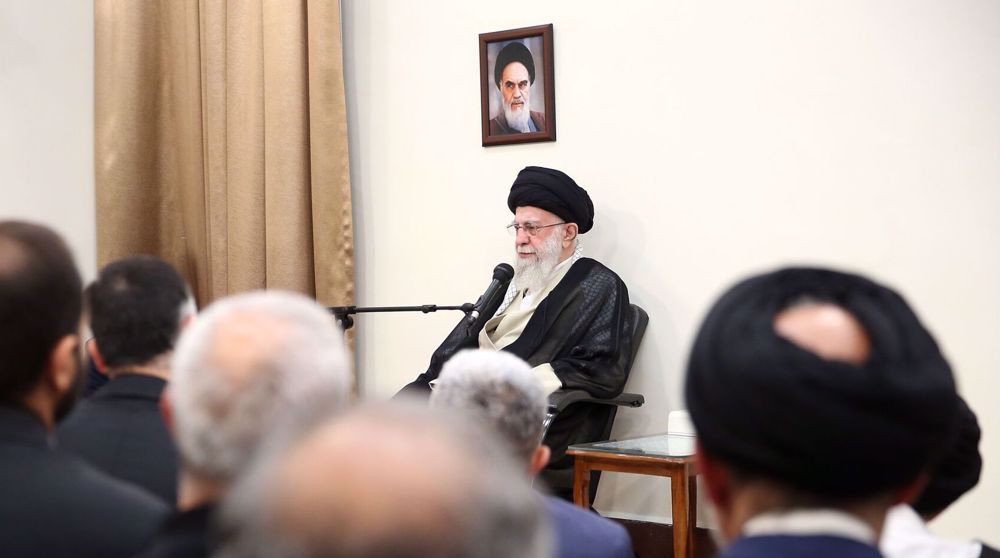
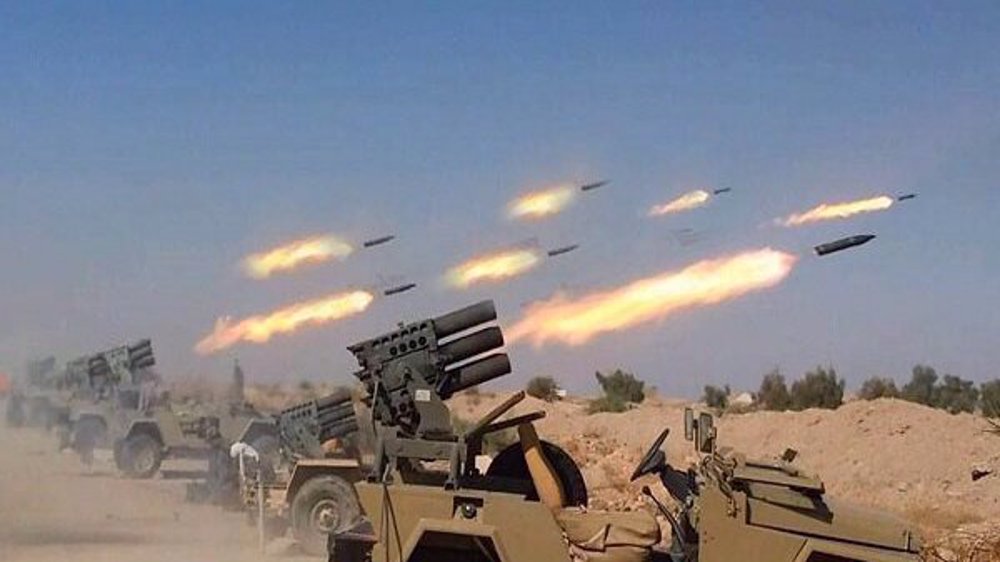



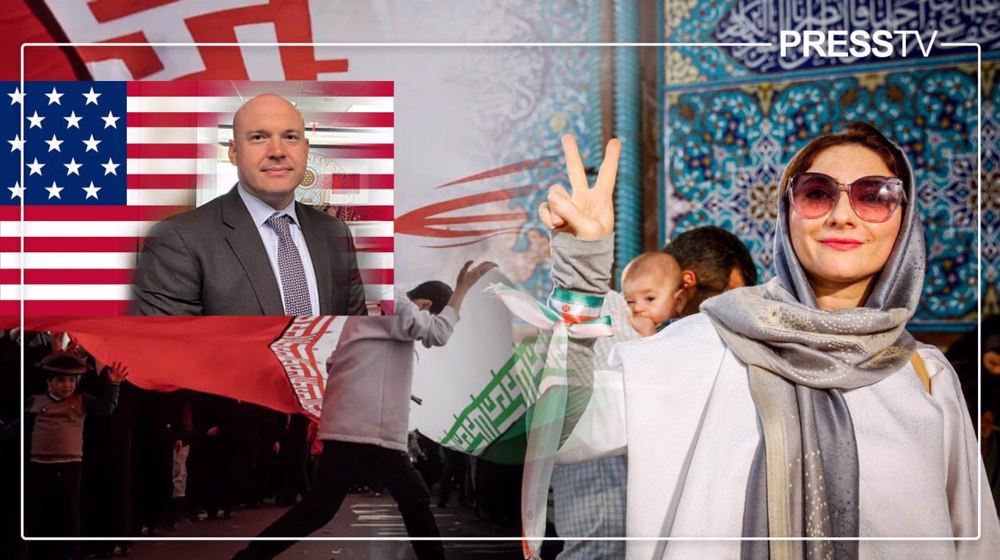
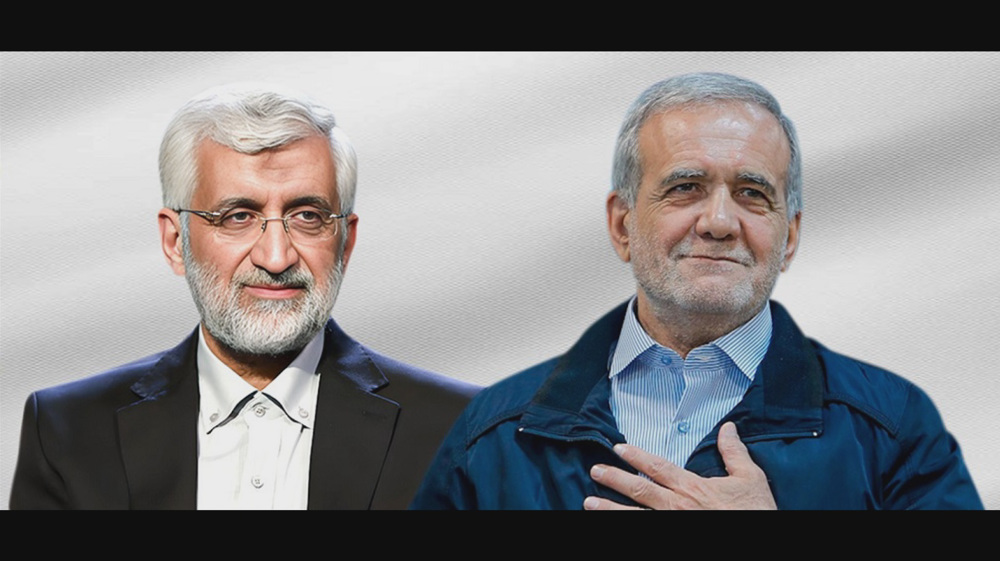
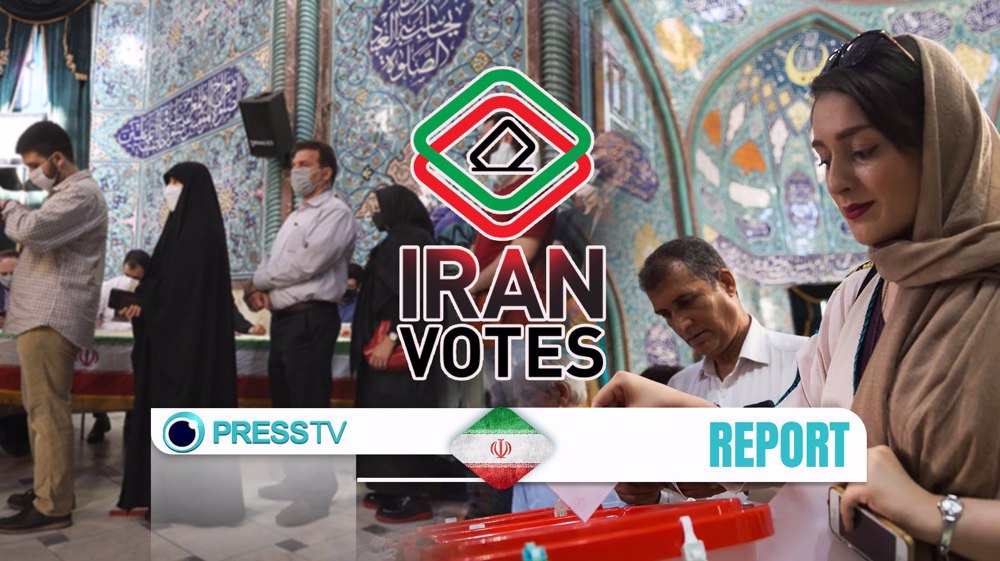
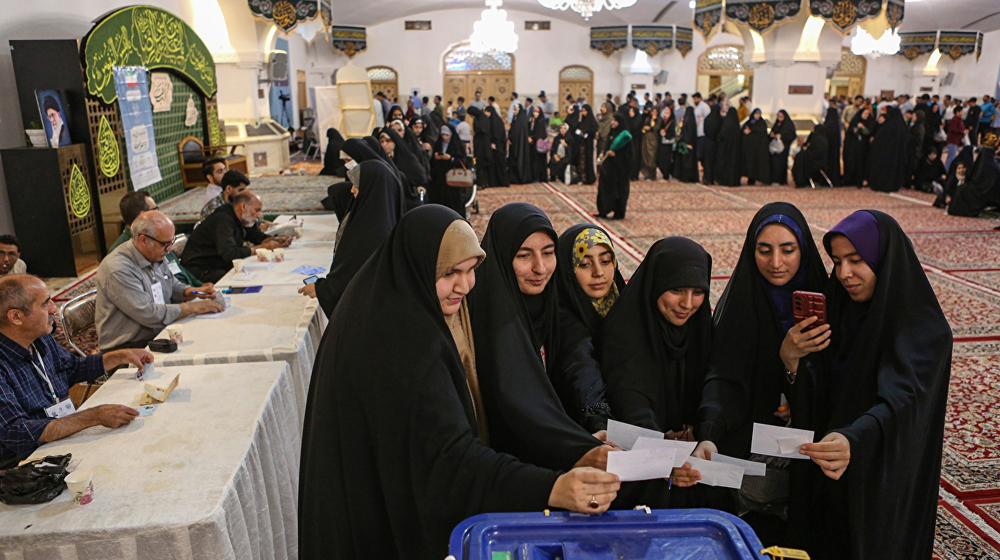
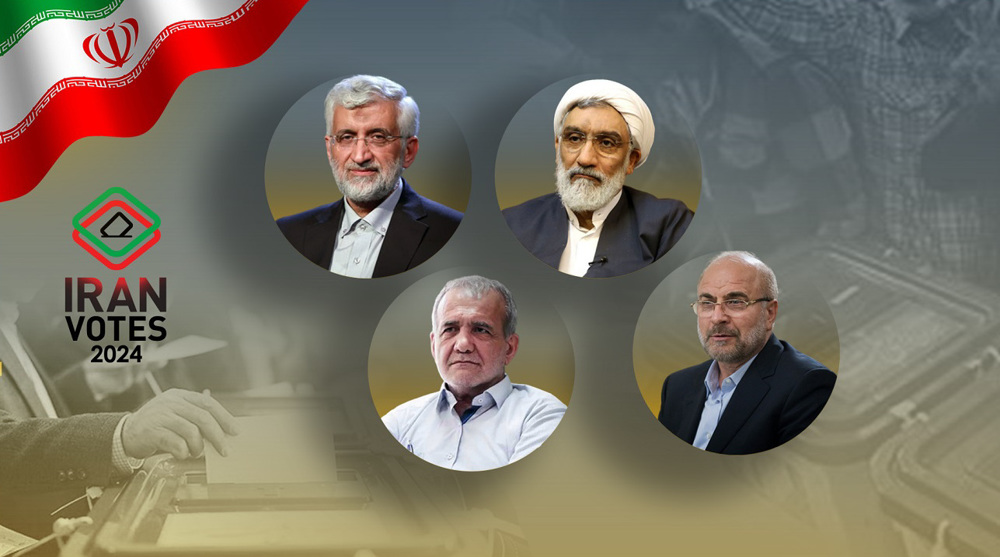

 This makes it easy to access the Press TV website
This makes it easy to access the Press TV website